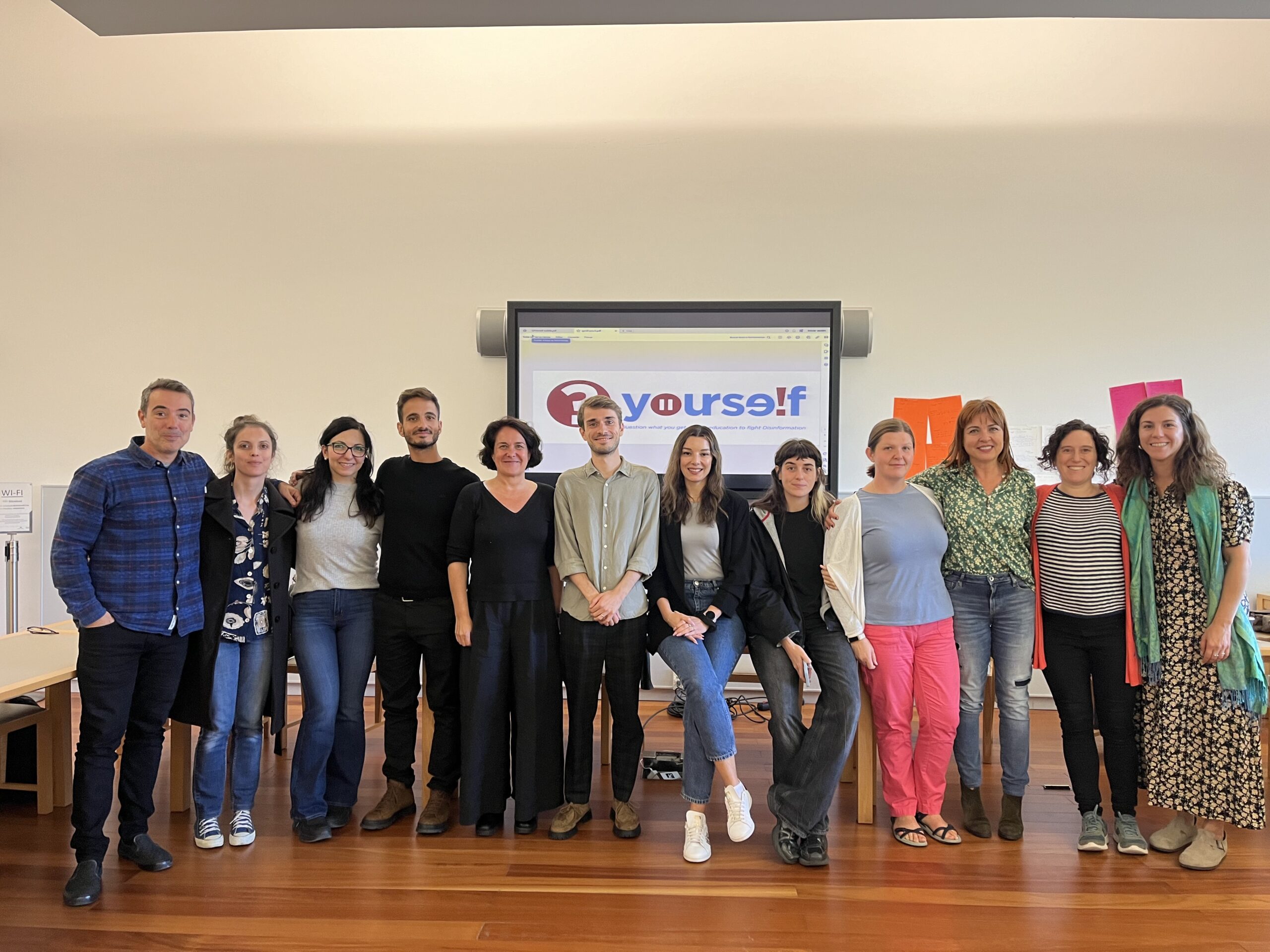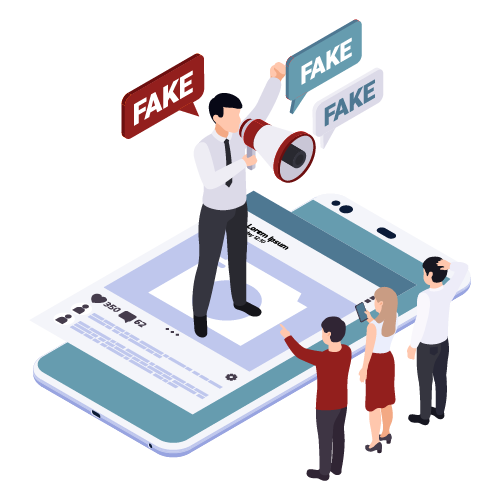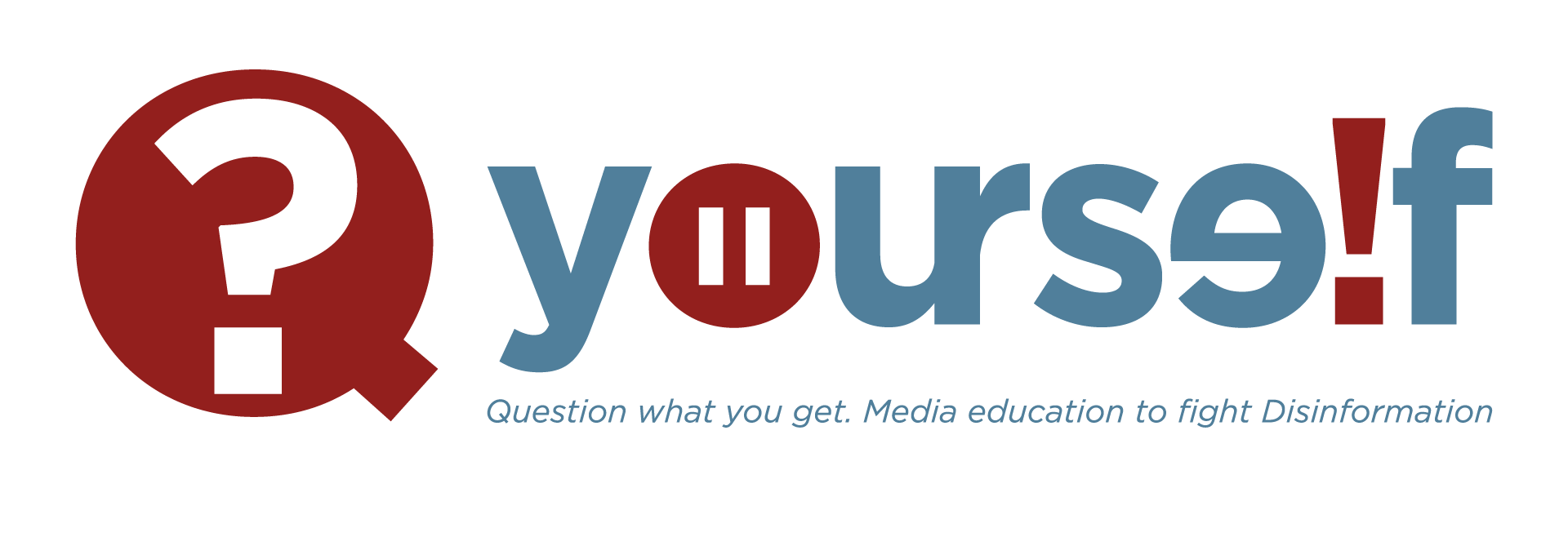The Project
Making journalism education accessible
to strengthen critical thinking
Did you know that journalism uses specific techniques to verify and validate the information we consume every day? Why not bring this knowledge into general education?
QYourself is a Media and Information Literacy (MIL) project that empowers teachers and educators in diverse educational settings with essential journalistic skills to tackle disinformation.
Journalism education plays a vital role in developing media and information literacy skills. This project simplifies university-level journalism training, providing educators with practical tools to foster critical thinking in their educational programmes.
We offer practical educational resources that make it easy to incorporate journalism techniques into your everyday teaching.
Our educational resources are designed for educators who want to create more reflective media experiences for their learners—helping them analyze, interpret, and use information more critically and responsibly.
This initiative enhances the skills of educators by aligning with the European Framework for the Digital Competence of Educators (DigCompEdu) and the European Commission’s guidelines on combating disinformation. We believe that the fight against disinformation must be rooted in strengthening society’s media and digital literacy.
Students who develop media and information literacy skills are better equipped to recognize disinformation and hate speech in society.

The Partnership
QYourself is a collaborative effort involving organizations from five European countries (Italy, Spain, Poland, Greece, Germany). The project forms a strategic alliance between two key fields essential to combating disinformation: Education and Journalism.
This international partnership brings together teachers and trainers from both formal and non-formal education, journalists, university researchers, and fact-checkers. As an interdisciplinary team, their mission is to adapt and share this expertise across diverse educational contexts and learner groups.

The Results
The project provides teachers and educators with practical journalism tools to promote media and information literacy (MIL). Our materials are based on extensive desk and field research involving hundreds of students, educators, and European MIL experts.
The development of our educational resources is rooted in the curricular adaptation of the Bachelor’s Degree in Journalism, simplifying key journalistic techniques for educators in both youth and adult education. These tools were first introduced through an intensive two-day workshop led by education and journalism professionals.
To ensure accessibility, the workshop materials have been digitized and condensed into five open educational resources, available for download on our website. Each partner organization has tailored the workshop to their local needs, delivering a hybrid course that has trained new teachers in five countries, in five languages, for five distinct learner groups.
Teachers participating in the project have gained skills in social media literacy, digital content creation, and video production. With this knowledge, they can now design classroom exercises that empower students to verify information using journalistic methods-enhancing their ability to critically assess the media they consume.

